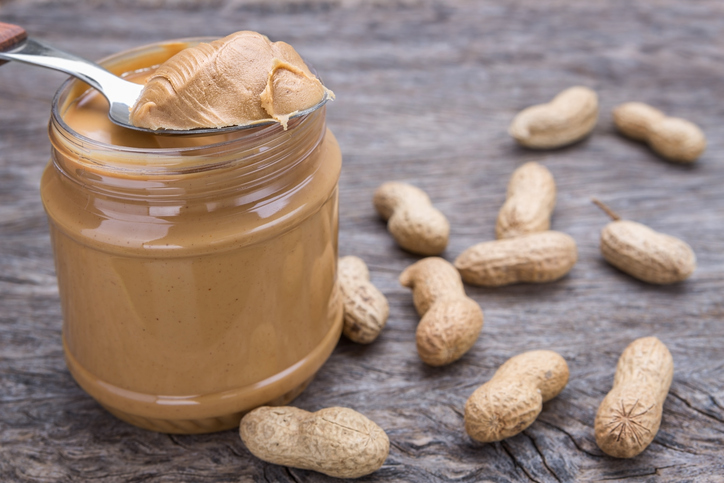If you have a child or close family member who has allergies, or if you’ve dealt with allergies of your own, this article is not for you. You’ve got the allergy thing covered.
This article is for the parent who doesn’t think twice about sending their child to preschool or on a playdate; the parent who doesn’t have to scrutinize ingredient lists or fear eating at a restaurant – it’s for the 93.1% of Canadian parents who don’t worry that their child will have a potentially serious reaction to something they eat.
 While you’ve probably heard that peanut allergies are common, can you list any of the other 9 top allergy offenders?
While you’ve probably heard that peanut allergies are common, can you list any of the other 9 top allergy offenders?
According to Health Canada, they are eggs, milk, mustard, peanuts, seafood (fish, crustaceans, shellfish), sesame, soy, sulphites, tree nuts, and wheat.
If you’re one of the 93%, maybe you haven’t thought much about how you can help prevent allergic reactions. It’s considered a good thing for non-allergic kids to eat the 10 allergenic foods listed above so they don’t develop an allergy.
So how can we balance eating healthily with protecting others in our community?
- Teach your kids to wash hands before and after eating – hand sanitizer doesn’t get rid of the proteins that cause allergic reactions.
- Teach kids not to share food with friends unless it’s cleared by the friend’s parent first.
- Before heading out into the community, brush teeth and wipe mouths to clear out any food leftovers.
- If your child is in child care or school, follow the allergy policy.
At home, think about cross-contamination – that’s when a food or surface comes into contact with an allergenic food. For example, if you use a knife to spread peanut butter on your sandwich, then use the same knife to scoop jam out of the jar, the jam is now contaminated with peanut protein.

Parents have told us that hosting a play date or party can be nerve-wracking if you know a child with an allergy is attending. Here are some tips for hosting a play date or party:
- Let parents know what you plan to serve.
- Ask specifically about allergies – parents are the experts in their children’s needs, so don’t feel bad about asking what the safest option will be.
- If possible, have allergen-free options so children don’t feel left out.
- If you’re being left with an auto-injector (e.g., EpiPen®), make sure you can recognize what an allergic reaction looks like and that you know how to use it.
 If you’re pregnant and don’t have a history of allergies, keep eating those nuts, omega-3-rich fish and mustard! Current research shows that pregnant women don’t need to avoid any foods except the ones they’re allergic to themselves.
If you’re pregnant and don’t have a history of allergies, keep eating those nuts, omega-3-rich fish and mustard! Current research shows that pregnant women don’t need to avoid any foods except the ones they’re allergic to themselves.
When introducing solid foods to baby, around 6 months of age, it’s fine (even beneficial!) for most kids to introduce allergenic foods early on; just wait a few days in between so if there’s a reaction like itchy skin, upset stomach or wheezing, you can pinpoint the source. However, if either parent or your child’s sibling (brother or sister) has an allergy, eczema, asthma or hay fever, consult your healthcare provider before introducing allergenic foods.
If you think your child might have a food allergy, have them diagnosed by a medical doctor. Allergies aren’t the same as intolerances or sensitivities.
We don’t know why allergies seem to be getting more common – but until we figure out how to make them go away, it helps to be allergy-aware.
Check out these allergy-friendly meal ideas:
This article first appeared in KIDS LINE Quarterly, our e-newsletter full of pregnancy and parenting information to help you and your family stay well. Sign up here to get the next issue!
